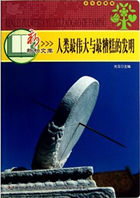"If Lord Eldon could be supposed to have written the play,I do not see how he could be chargeable with having forgotten any of his law while writing it."Charles and Mary Cowden Clarke speak of "the marvelous intimacy which he displays with legal terms,his frequent adoption of them in illustration,and his curiously technical knowledge of their form and force."Malone,himself a lawyer,wrote:"His knowledge of legal terms is not merely such as might be acquired by the casual observation of even his all-comprehending mind;it has the appearance of technical skill."Another lawyer and well-known Shakespearean,Richard Grant White,says:"No dramatist of the time,not even Beaumont,who was the younger son of a judge of the Common Pleas,and who after studying in the Inns of Court abandoned law for the drama,used legal phrases with Shakespeare's readiness and exactness.And the significance of this fact is heightened by another,that it is only to the language of the law that he exhibits this inclination.The phrases peculiar to other occupations serve him on rare occasions by way of deion,comparison or illustration,generally when something in the scene suggests them,but legal phrases flow from his pen as part of his vocabulary,and parcel of his thought.Take the word 'purchase'for instance,which,in ordinary use,means to acquire by giving value,but applies in law to all legal modes of obtaining property except by inheritance or descent,and in this peculiar sense the word occurs five times in Shakespeare's thirty-four plays,and only in one single instance in the fifty-four plays of Beaumont and Fletcher.It has been suggested that it was in attendance upon the courts in London that he picked up his legal vocabulary.But this supposition not only fails to account for Shakespeare's peculiar freedom and exactness in the use of that phraseology,it does not even place him in the way of learning those terms his use of which is most remarkable,which are not such as he would have heard at ordinary proceedings at nisi prius,but such as refer to the tenure or transfer of real property,'fine and recovery,''statutes merchant,''purchase,''indenture,''tenure,''double voucher,''fee simple,''fee farm,''remainder,''reversion,''forfeiture,'etc.This conveyancer's jargon could not have been picked up by hanging round the courts of law in London two hundred and fifty years ago,when suits as to the title of real property were comparatively rare.And beside,Shakespeare uses his law just as freely in his first plays,written in his first London years,as in those produced at a later period.Just as exactly,too;for the correctness and propriety with which these terms are introduced have compelled the admiration of a Chief Justice and a Lord Chancellor."Senator Davis wrote:"We seem to have something more than a sciolist's temerity of indulgence in the terms of an unfamiliar art.No legal solecisms will be found.The abstrusest elements of the common law are impressed into a disciplined service.Over and over again,where such knowledge is unexampled in writers unlearned in the law,Shakespeare appears in perfect possession of it.In the law of real property,its rules of tenure and descents,its entails,its fines and recoveries,their vouchers and double vouchers,in the procedure of the Courts,the method of bringing writs and arrests,the nature of actions,the rules of pleading,the law of escapes and of contempt of court,in the principles of evidence,both technical and philosophical,in the distinction between the temporal and spiritual tribunals,in the law of attainder and forfeiture,in the requisites of a valid marriage,in the presumption of legitimacy,in the learning of the law of prerogative,in the inalienable character of the Crown,this mastership appears with surprising authority."To all this testimony (and there is much more which I have not cited)may now be added that of a great lawyer of our own times,viz.Sir James Plaisted Wilde,Q.C.created a Baron of the Exchequer in 1860,promoted to the post of Judge-Ordinary and Judge of the Courts of Probate and Divorce in 1863,and better known to the world as Lord Penzance,to which dignity he was raised in 1869.
同类推荐
热门推荐
竹马逆袭:推到傲娇小青梅
作为陶夭的竹马,言峥表示很心累…在陶夭5岁时,言峥很心酸……又当保姆又当老师。在陶夭12岁时,言峥表示很心烦…因为陶夭收到了人生第一份情书。在陶夭18岁时,言峥表示很心痛…小青梅脱离了自己的怀抱,跟其他男人跑了在陶夭22岁时,言峥……终于忍不住了……推倒推倒再推倒能成大事的男人必知的57个细节
作为一个男人,谁不想在社交中如鱼得水,游刃有余?在事业上大显神通开创辉煌?又有谁不想魅力无限引人注目?谁不想活得潇洒,过得逍遥?可是,有那么多男人因为无视细节中的机会,而一生碌碌无为;也有那么多男人粗心大意,而与财富失之交臂;还有那么多男人因为不拘生活小节,而风度尽失,形象尽毁,前程也随之黯然失色,他们败在了细节!人类最伟大与最糟糕的发明
科学技术的飞速发展为人类创造了无穷的物质财富,使人类享有人无法企及的巨大能量。这些卓越的成果改变了人类生产和生活的方式及质量,同时也深刻地更新了人类的思维观念和对世界的认知,改变并继续改变着世界的面貌。科学技术的发展极大地影响着社会的发展,人类发展的足迹在几个世纪的漫长历程中,有很多值得回忆的东西,比如文字的发明创造,以及天文、历法、数学等方面所取得的辉煌成就,不能不说这是人类文明史上最伟大的贡献,它使人类的生活发生了翻天覆地的变化。















